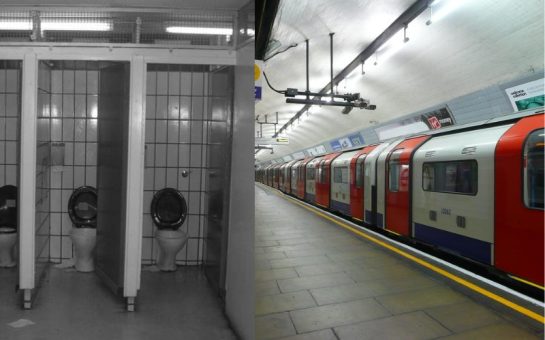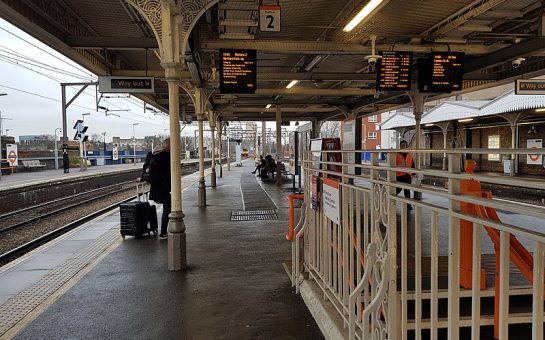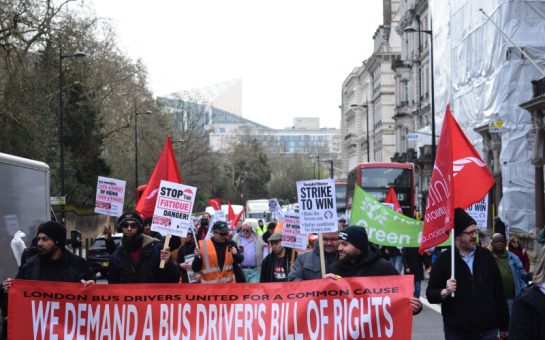SW Londoner reporter Asif Faruque looks at life for disabled people using London transport and what more can be done.

Public transport can be troublesome at the best of times – rush hour panics, overcrowding on tubes and rowdy school kids just to name a few.
But what if you’re one of the 1.4million disabled people living in London? How do they really cope using London’s extensive transport network?
It would be inaccurate to say there have not been improvements – in the last 10 years we have seen the introduction of all sorts of new and exciting technology.
But it’s not just the transport that is being modified – drivers too have been taught how to help people who have disabilities.
The Big Red Book is issued to all London bus drivers and outlines the steps they must take to ensure all passengers receive a fair, smooth and enjoyable experience on their bus journey.
In the book, which was introduced in 2008, are 16 pages dedicated to helping passengers with disabilities. It is however a little disconcerting to find that mental health issues are only mentioned once in the foreword of the ‘disabilities’ chapter and then never again.
“Bus drivers should be aware of people who have autism as they might not even look as if they have a learning difficulty. Drivers are not sensitive, they just need to be aware of people’s needs,” said Pauline Stanley, mother of 30-year-old David Stanley, who has Down Syndrome.
David, who lives with his mother in Norbury, is all too familiar with the feeling of being marginalised. David is partially-sighted so often fails to put his arm out for the bus, which then doesn’t stop for him.
However the Big Red Book states:
“You pull up to pick up passengers. It doesn’t matter what kind of stop or if the passengers put their hands out – if there’s someone waiting to board, the Mystery Traveller expects you to stop.”
Using just one experience to tar every London bus driver would be incredibly short-sighted but the fact remains that change still needs to be made. A sentiment which was echoed by mayoral candidate Brian Paddick.
He said: “Being a bus driver is no longer a profession. They don’t get paid very much and they’re not taking care of passengers. Taking care of passengers is also part of the deal.”
The only respite in David’s troubles with transport is that his disorder is immediately apparent.
The real trouble begins when people with less obvious disabilities use public transport.
Nikkie Mathurin, 31, of Raynes Park was born with Williams Syndrome which has a number of symptoms related to learning development but has no obvious physical signs.
One of those symptoms is anxiety, something Nikkie feels on a daily basis getting the bus to and from her care group appointments at St George’s Hospital, Tooting.
“She will stand back at the bus stop as she can’t bear the school kids. I get phone calls from her saying she’s just sitting in Centre Court and that she’s waiting for the kids to go home,” said her mother, Carol Mathurin.
The problem of school children was something current London Mayor Boris Johnson has tried to solve.
“Young people who have free travel are encouraged to be courteous to other passengers otherwise they run the risk of losing their free Oyster card,” Boris encouraged voters at the hustings organised by Mencap.
Carol used her own initiative to create a unique identification name badge for her daughter to wear whenever she uses transport.
The purple badge clearly states Nikkie’s name as well as indicating she suffers from a non-visible disability.
The fact is London still has to make some significant changes before disabled people can enjoy the same peace of mind and accessibility that most do.
The freedom to catch a bus without fear of being ridiculed, the right to have a bus driver treat you with dignity and consideration.
Are we there yet? Superficially, yes. London’s transport infrastructure may be slow to change but it is changing. People who have mobility problems can get around a lot easier than they could just a couple of years ago.
But for those who have learning difficulties or less obvious difficulties, a lot needs to change – starting first with attitudes.
Follow us at @SW_Londoner




